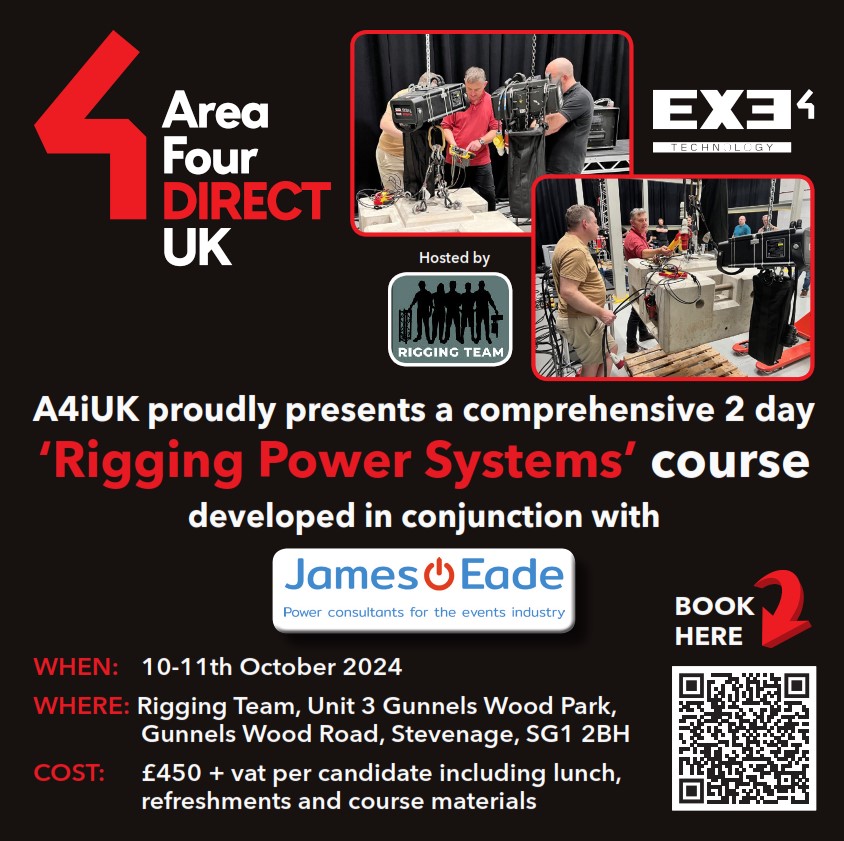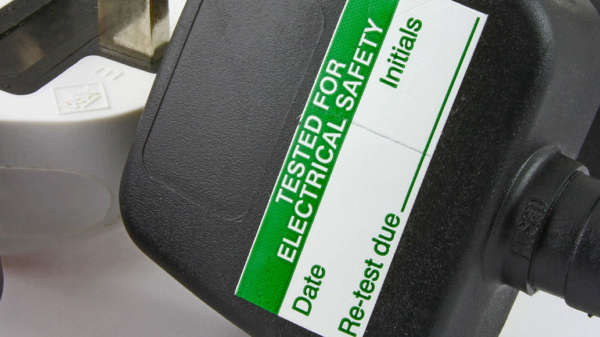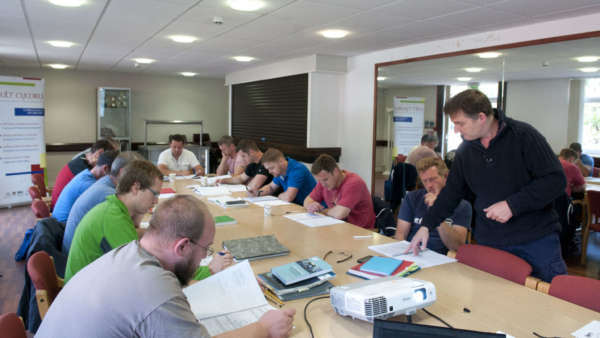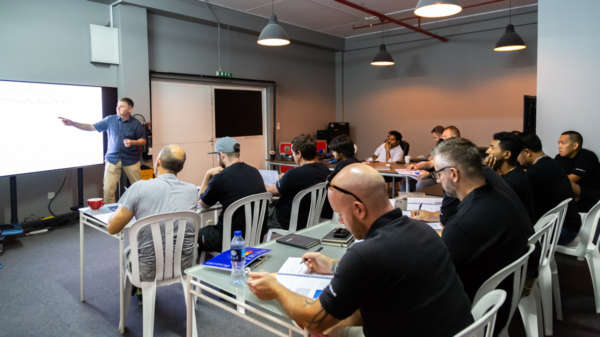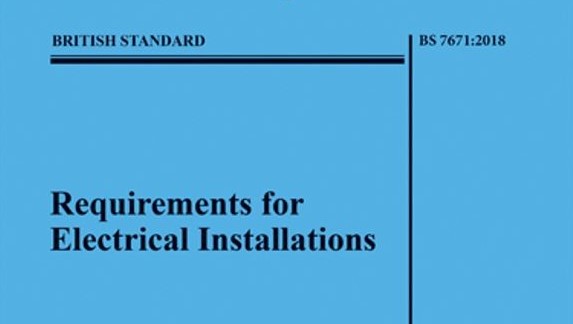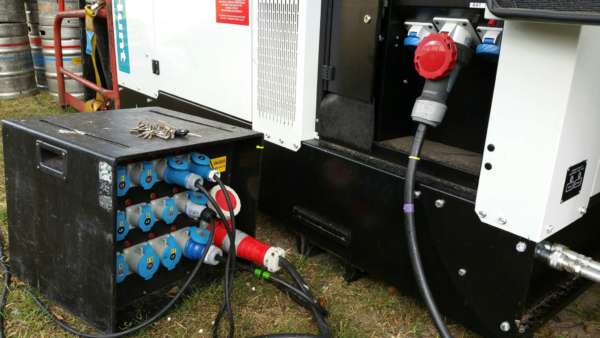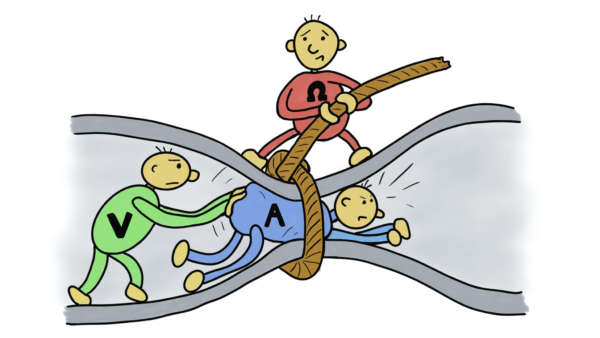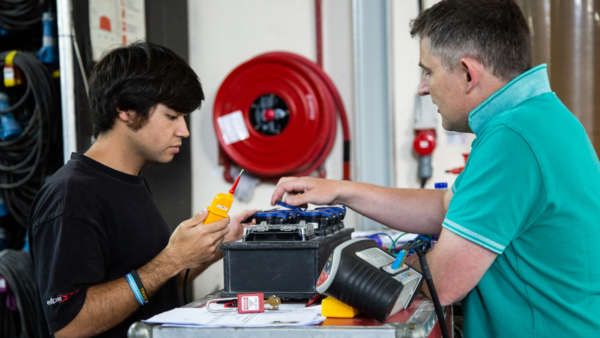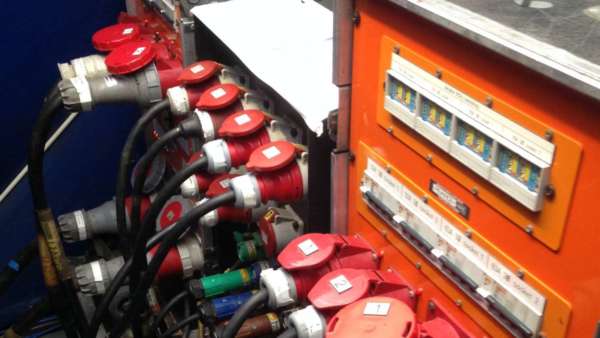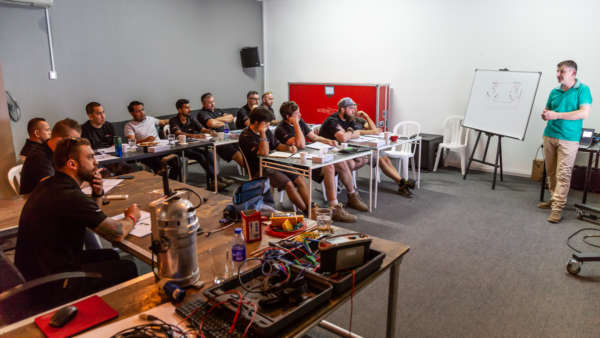£450+VAT per person
A joint course with Rigging Team and Area 4 Industries. Bookings are handled by Rigging Team
This course is aimed particularly at non-electrical rigging technicians who use and distribute power for motors and drives.
Many will have experienced burnt-out contactors, failed windings or unexplained blown fuses. Are they faulty components, or issues from poor electrical design?
What about the risks with different Socapex pin-outs? Do you actually need RCDs on variable speed drives? How often should you ‘PAT test’ your kit? Does BS 7909 apply to rigging? Does it matter how long your rigging multi really is? Why are there always power issues with variable speed drives? What happens if a neutral fails?
For many in the rigging industry, power is a necessary sideline. But the safe and effective operation of motors, winches and similar all rely on effective protection and distribution. Come and find the definitive answers to these questions and more in this training workshop sponsored by Area 4 and hosted by Rigging Team.
Course outline
- Basic electrical theory overview/recap: Ohms law and how current, voltage and resistance interact.
- Electricity generation and the use of three- and single-phase supplies and the importance of phase balancing.
- The methods of protection from shock and overloads
► Practical demonstration: Measuring fault currents and voltage drop.
- Essential motor theory: Direct online starting, phase reversal, inverter drives.
- Control systems overview; Limit switches, up/down control, E-Stop operation.
► The above based on the EXE Rise suggested wiring schemes.
► Practical look at examples of controller functionality
► Practical look at wiring conventions
► Electrical standards and compliance notes
- A basic guide to power quality.
- Power measurements – a look at voltage drop and harmonics in demonstration equipment.
- A review of electrical legislation and appropriate standards including BS 7671 (the ‘wiring regs’) and BS 7909.
- Electrical maintenance and what is required for compliance with legislation.
- On-site checks and tests.
On completion of the course candidates will have:
A basic knowledge of how to use electrical equipment safely in lifting operations
Comprehensive course notes
A numbered certificate of attendance relating to the syllabus above
An appreciation of their legal duties about power systems in automation


